-
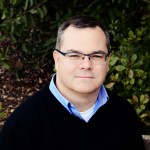
Erik Gartzke
Principal Investigator
Dr. Gartzke studies war, peace and international institutions. His research interests include nuclear security, the liberal peace, international institutions and the evolving nature of warfare. He has written on the effects of commerce, economic development, system structure and climate change on war. Professor Gartzke’s research appears in the American Political Science Review, the American Journal of Political Science, the British Journal of Political Science, International Organization, International Security, International Studies Quarterly, the Journal of Conflict Resolution, the Journal of Politics, World Politics, and elsewhere.
-

Jon Lindsay
Co-Principal Investigator
Dr. Lindsay is an Assistant Professor of Digital Media and Global Affairs at the University of Toronto, Munk School of Global Affairs. He teaches in the Masters of Global Affairs curriculum. His research focuses on cybersecurity, military innovation, and grand strategy. He examines the impact of technology on international security and has appeared in International Security, Security Studies, Journal of Strategic Studies, and Technology and Culture. He is editor (with Tai Ming Cheung and Derek Reveron) and contributor for China and Cybersecurity: Espionage, Strategy, and Politics in the Digital Domain (Oxford University Press, Forthcoming 2015). He holds a PhD in political science from the Massachusetts Institute of Technology and an MS in computer science and BS in symbolic systems from Stanford University. He is an officer in the U.S. Naval Reserve with seventeen years of experience, including active duty assignments in Europe, Latin America, and the Middle East.
-

Michael Nacht
Co-Investigator
Dr. Nacht is the Thomas and Alison Schneider Professor of Public Policy at the Goldman School of Public Policy at UC Berkeley. Dr. Nacht has had a diverse career in academic, government, and the private sector, specializing in US national security policy and international affairs; technology and public policy; and management strategies for complex organizations. Dr. Nacht served as Assistant Secretary of Defense for Global Strategic Affairs from 2009-10 after a unanimous US Senate confirmation for which he received the Distinguished Public Service award, the highest civilian honor.
-

Jiakun Jack Zhang
Graduate Student Researcher
Jack Zhang is a PhD student in the Department of Political Science. His core research interests are East Asian political economy and security, with a focus on contemporary China. He was recently awarded a Fulbright Research Grant to support fieldwork researching the economic effects of regional political crises in Asia on China based firms. Jack holds a bachelor’s degree in political science and a certificate in East Asian studies from Duke University, where he served as the Editor-in-Chief of Duke East Asia Nexus and was a co-founder of the Duke-UNC China Leadership Summit. Prior to coming to UC San Diego, Jack worked as a China researcher for the Eurasia Group in Washington, DC. He currently serves as Senior Advisor to UCSD’s China Focus Blog. He was recently named to China Hands’ 2013 “25 Under 25 in US-China Relations” list. Follow Jack on Twitter @HanFeiTzu
-

Peter Barnes, Jr.
Collaborator
Dr. Barnes is a research scientist in Livermore’s Physical and Life Sciences Directorate. He has a 24 year background in systems architecture, design, and implementation. He received his B. S. in Physics from Yale University, and Ph.D. in Physics from UC Berkeley, where he designed and built the first cryogenic dark matter experiment. Since then he has designed, built, and deployed experimental systems for neutrino oscillations, proton radiography, particle production and cross section measurements, and homeland security applications. Recently he has applied algorithms and methods from particle physics analysis to advanced cyber-security problems. He currently leads the network modeling team at Livermore, and co-leads the discrete event simulation team. He has published in Physical Review, Physical Review Letters, Nuclear Instruments and Methods, and The Annals of the ACM.
-
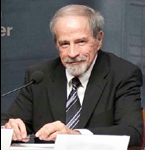
Joe Pilat
Co-Investigator
Dr. Pilat is Senior Advisor in the LANL National Security Office, providing policy support to Laboratory Director, senior leadership and division programs, administering and conducting analyses for the Laboratory, DOE/NNSA, and other U.S. government agencies, particularly in the areas of arms control, nonproliferation, counter-proliferation and counter-terrorism since 2006. He has been a member of the IGCC Steering Committee since 2007 and a member of the Proliferation Resistance and Physical Protection (PR&PP) Working Group, Gen IV International Forum, since 2006. He received a Ph.D. in History (European and Russian) from Georgetown University, an M.A. in Government and a B.A. in Philosophy.
-

Celeste Matarazzo
Former Co-Investigator
Celeste Matarazzo is a data science expert with more than 24 years of service to the LLNL’s Computation Directorate. Celeste is presently the Associate Program Leader for Network Exploitation within Information Operations and Analytics (IOA) program for the Global Security Principal Associate Directorate and the Deputy Director of the Network Security Innovation Center (NSIC). She is currently the Principal Investigator for a large LLNL-funded strategic initiative research project in cyber security situational awareness called Continuous Network Cartography, which will complement efforts to model CDD interactions. She is also the program manager for LLNL’s Cyber Defenders Summer Intern Program. Celeste was previously the project leader for the Advanced Simulation and Computing Program’s Scientific Data Management effort. Celeste has a B.S. in Mathematics and Computer Science from Adelphi University.
-
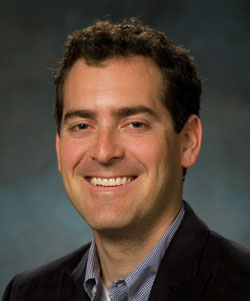
Ben Bahney
Collaborator
Benjamin W. Bahney is a political scientist at LLNL where he studies national security issues in the cyber and space domains. Ben is also an adjunct employee at the RAND Corporation focusing on social science and counterinsurgency. From 2007 to 2010 he advised Multi-National Force-Iraq and the U.S. Marine Corps on economics and threat finance. Ben has worked on a number of quantitative modeling studies, such as a multidisciplinary RAND study to model the effects of U.S. policies on terrorism, a large RAND effort called COMPARE to model the U.S. health care system, and a series of studies using financial documents from the Islamic State of Iraq to model how finances enable terrorist organizations to organize violence. His research has appeared in the New York Times, the American Economic Review, the American Journal of Public Health, and Medical Care Research and Review. Ben has an M.A. in international relations from UC San Diego and a B.A. from the University of Pennsylvania.
-

Kyle Beardsley
Former Collaborator
Kyle is an Associate Professor of Political Science at Duke University, after having recently moved from Emory University. He received his PhD from the University of California, San Diego in 2006. He did his undergraduate studies at the University of Maryland. He teaches a range of courses on international conflict resolution, international security, and research methodology. His research interests include the political consequences and causes of third-party involvement in peace processes, the nature of intrastate rebellion, the motivations for and implications of gender balancing in post-conflict security forces, and the effects of nuclear-weapons proliferation on conflict behavior.
-

Victor Asal
Former Collaborator
Victor Asal is Director of the Center for Policy Research and an Associate Professor in the Department of Political Science and the director of the Homeland Security Certificate and MPA Concentration in the Department of Public Administration and Policy. He received his PhD from the University of Maryland, College Park. He is also, along with R. Karl Rethemeyer, the co-director of the Project on Violent Conflict. Dr. Asal is affiliated with the National Consortium for the Study of Terrorism and Responses to Terrorism (START), a Department of Homeland Security Center of Excellence. Dr. Asal’s research focuses on the choice of violence by non-state organizational actors as well as the causes of political discrimination by states against different groups such as sexual minorities, women and ethnic groups. In addition, Prof. Asal has done research on the impact of nuclear proliferation and on the pedagogy of simulations. Asal has been involved in research projects funded by the Defense Advanced Research Projects Agency, Defense Threat Reduction Agency, The Department of Homeland Security, The National Science Foundation, and The Office of Naval Research.
Prof. Asal teaches courses on world and comparative politics, political violence and oppression, negotiation and research design. He has worked as a negotiation trainer in a variety of academic, governmental and military settings, and in conjunction with the ICONS Project, created simulations on varied topics.
-

Braden C. Soper
Collaborator
Dr. Braden Soper is a data scientist in the Global Security Computing Applications Division at Lawrence Livermore National Laboratory. He holds a B.S. in Mathematics from the University of California, Los Angeles and a Ph.D. in Applied Mathematics and Statistics from the University of California, Santa Cruz. His thesis research involved the development, analysis and computation of game theoretic models for adversarial threat detection in the cyber security domain. As a researcher at LLNL, Dr. Soper applies his skills as an applied mathematician and statistician to assist in the modeling and analysis of complex data sets in a variety of domains.
-

Rex Douglass
Collaborator
Rex W. Douglass is the director of the Machine Learning for Social Science Lab (MSSL) at the Center for Peace and Security Studies, University of California San Diego. His research focuses on applying advanced technologies to research problems in the social sciences and policy world, particularly on issues of human conflict. Some of his research investigates how to use existing sources in novel ways, like cell phone data for creating a population census, historical news and archival documents for global measures of human violence, or historical military maps and satellite imagery as a measure of global infrastructure. Other projects focus on automating and reducing the cost of getting unstructured raw information into usable big data, like graphical user interfaces for human labeling of text sources, natural language processing pipelines for automated knowledge extraction, and machine vision pipelines for optical character recognition on old historical documents. He has worked at UCSD since 2012 after completing his Ph.D. in Politics at Princeton University.
-
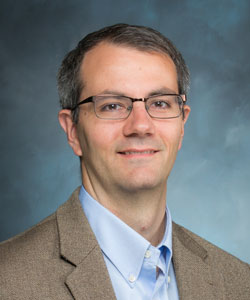
Michael Markey
Contributor
Michael Markey is a political scientist at Lawrence Livermore National Laboratory; prior to his work at the Lab he spent several years in the U.S. government studying national security issues, with an emphasis on threat reduction, monitoring and South Asia. His current research interests at Lawrence Livermore include extended deterrence, escalation control and strategic stability with an emphasis on emerging domains of competition. His work leverages the National Laboratory’s expertise in modeling and simulation as well as technical experts on system design and engineering. He holds an MA in International Affairs from the University of California-San Diego as well as a BS in Biology and a BA in History from the University of California-Santa Barbara.
-
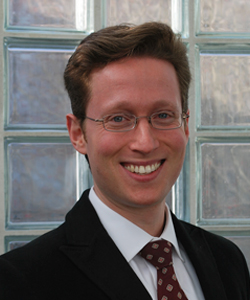
Jonathan Pearl
Contributor
Jonathan Pearl is a Fellow at the Center for Global Security Research (CGSR) at Lawrence Livermore National Laboratory (LLNL). He contributes to the Center’s work on space, cyber, nuclear, and science and technology issues. His research interests include deterrence and strategic stability, proliferation and arms control, and crisis and escalation control. Dr. Pearl also contributes to the University of California San Diego’s Minerva Initiative project on Cross-Domain Deterrence. From 2010-2011, Dr. Pearl held dual appointments as a Stanton Nuclear Security Fellow at the Council on Foreign Relations and as a Jennings Randolph Peace Scholar at the United States Institute of Peace. Previously, he researched and wrote on nuclear safeguards and export controls at LLNL (2010), he worked on nuclear arms control as an adjunct researcher and summer associate at the RAND Corporation (2009), and he was a nuclear scholar at the Center for Strategic and International Studies (2007-2008). From 2002 to 2006, Dr. Pearl served as a foreign policy and national security advisor to former Senator Christopher J. Dodd. Dr. Pearl’s work has been published by the U.S. Army War College, the Bulletin of the Atomic Scientists, the Council on Foreign Relations, and the Center for Strategic and International Studies. He holds a PhD and MA in government and politics from the University of Maryland, and a BA in music from Florida Atlantic University.
-
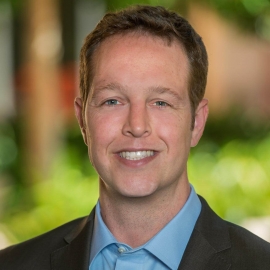
Peter Schram
Staff Researcher Analyst
Peter Schram is Staff Research Analyst in the Political Science Department at UCSD, and a PhD candidate in the Political Economics group at Stanford’s Graduate School of Business. His research uses empirical and microeconomic methods to study counterinsurgency, economic development, and grey zone conflict. His time working on the Minerva project will be spent using game theoretic modeling to examine the decisions of state and non-state actors regarding their tactics and use of force. In the Fall 2017 he will be joining Vanderbilt’s Political Science Department as an Assistant Professor.
-

Shannon Carcelli
Graduate Student Researcher
Shannon Carcelli is a PhD student in the Department of Political Science at the University of California, San Diego. She is interested in international security, with a focus on foreign military intervention. She is a graduate of Carleton College.
-

Clara H. Suong
Former Graduate Student Researcher
Clara H. Suong is a PhD student in the Department of Political Science at University of California, San Diego. She is interested in the international-domestic nexus in conflict and violence. Her research appears in the Presidential Studies Quarterly. Clara holds a BA in anthropology from Seoul National University and an MA in politics from NYU.
-

Catherine Kane
Former Graduate Student Researcher
Catherine is a graduate student of Comparative and American Politics at UMD. Cat graduated from the University of Rochester with a B.A. in Political Science in 2011. While at Rochester, Cat spent a semester abroad in London interning in the British House of Commons for a Member of Parliament. Leaving the snow and cold behind, Cat moved to Baltimore for a job and decided to pursue her Ph.D. at UMD. Cat's current research focuses on radical and minor political parties, fringe interests, and social movement organizations in the United States and Western Europe.
-
Andres Gannon
Graduate Student Researcher
Andres Gannon is a PhD student in the Department of Political Science at the University of California, San Diego. He is interested in international security, with a focus on interstate wars. Andres holds a BA from the University of California, Berkeley.
-
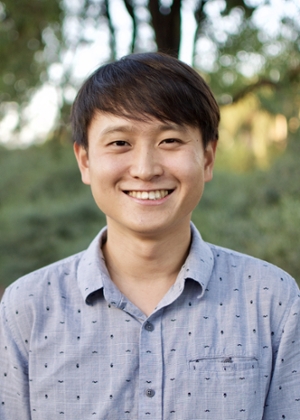
Daegyeong (D.G.) Kim
Graduate Student Researcher
Daegyeong (D.G.) Kim is a PhD student in the Department of Political Science at the University of California, San Diego. His research interests include the psychological and cognitive foundations of foreign policymaking and public opinion utilizing experiments and neuroimaging techniques. D.G. holds a BA from Cornell University.
-
Jeff Fritsch
Programmer/ Analyst/ IT Consultant
Jeff is the Director of computer systems and consulting. He oversees programming and systems support, application and development research, and system security at the University of California, San Diego campus.
Previous Collaborators
-

Oliver Reyes
Former Website Developer/ Undergraduate Researcher
Oliver recently received his B.S. in Computer Science at the University of California, San Diego. He is responsible for work on two federally funded Minerva Projects. He was tasked with designing and performing maintenance on the Minerva Project websites and managing its content.
-

Rupal Mehta
Former Graduate Student Researcher
Rupal Mehta is Stanton Nuclear Security Postdoctoral Fellow in the Belfer Center’s International Security Program and Project on Managing the Atom. She is as an Assistant Professor in the Department of Political Science at the University of Nebraska, Lincoln. She is also a member of the University of Nebraska’s National Strategic Research Institute where she consults for USSTRATCOM and a researcher with the Center for Pacific Studies at the University of California, San Diego. Prior to starting graduate school, she was a researcher at the Center for International Security and Cooperation at Stanford University and the Woodrow Wilson International Center for Scholars. She received a Ph.D. and M.A. in Political Science from the University of California, San Diego, and B.A. in Political Science from the University of California, Berkeley.
-

Paul Spitsen
Graduate Student Researcher
Paul Spitsen received a Master’s of Pacific and International Affairs from University of California San Diego’s School of International Relations and Pacific Studies with a dual focus on International Security and Public Policy and a regional emphasis on China. He obtained his BA from UCSD’s International Studies Program. His current research interests include Chinese military modernization, the U.S. military’s response to emerging asymmetric threats, intrastate violence, terrorism and insurgency, nuclear security and non-proliferation, and U.S. security strategy.
-

Patrick K. Davis
Graduate Student Researcher
Patrick K. Davis is a MBA candidate in the Foster School of Business, at the University of Washington. He is interested in the security of the Asia-Pacific and the rise of China. Patrick holds a BA in political science from Saint Joseph’s University and an MAS in international affairs from the University of California, San Diego. Previously, Patrick served as an officer in the United States Marine Corps, including deployments to the Asia-Pacific and Afghanistan.